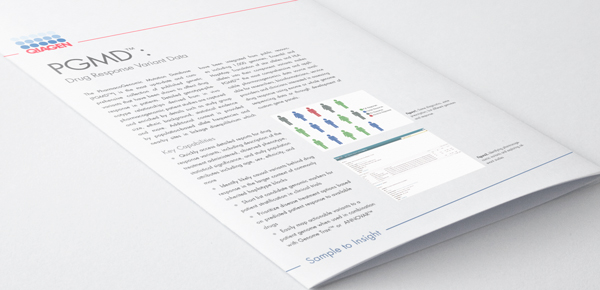


















Article on PGMD: a comprehensive manually curated pharmacogenomic database
The PharmacoGenomic Mutation Database (PGMD) is a manually curated database of drug response variants. The aim of the database is to provide a comprehensive resource for all variants that have been reported to have a pharmacogenomic effect in human studies and to describe those variants by exact genomic location and sequence alterations for application to NGS data analysis. The database is designed to contain extensive information as evidence for these associations, including information on resulting phenotype, drugs administered, patient population, study design, disease context, statistical significance, and provenance of this information.
The paper describes sources and curation processes of content acquisition, the content scope, and the accessibility of PGMD from an online interface and as a download.
Abstract:
The PharmacoGenomic Mutation Database (PGMD) is a comprehensive manually curated pharmacogenomics database. Two major sources of PGMD data are peer reviewed literature and FDA drug labels. PGMD curators capture information on exact genomic location and sequence changes, resulting phenotype, drugs administered, patient population, study design, disease context, statistical significance and other properties of reported pharmacogenomic variants. Variants are annotated into functional categories basing on their influence on pharmacokinetics, pharmacodynamics, efficacy or clinical outcome. The current release of PGMD includes over 117000 unique pharmacogenomic observations, covering all 24 disease super classes and nearly 1400 drugs. Over 2800 genes have associated pharmacogenomic variants, including genes in proximity to intergenic variants. PGMD is optimized for use in annotating next generation sequencing data by providing genomic coordinates for all covered variants, including SNPs, insertions, deletions, haplotypes, diplotypes, VNTRs, copy number variations, and structural variations.